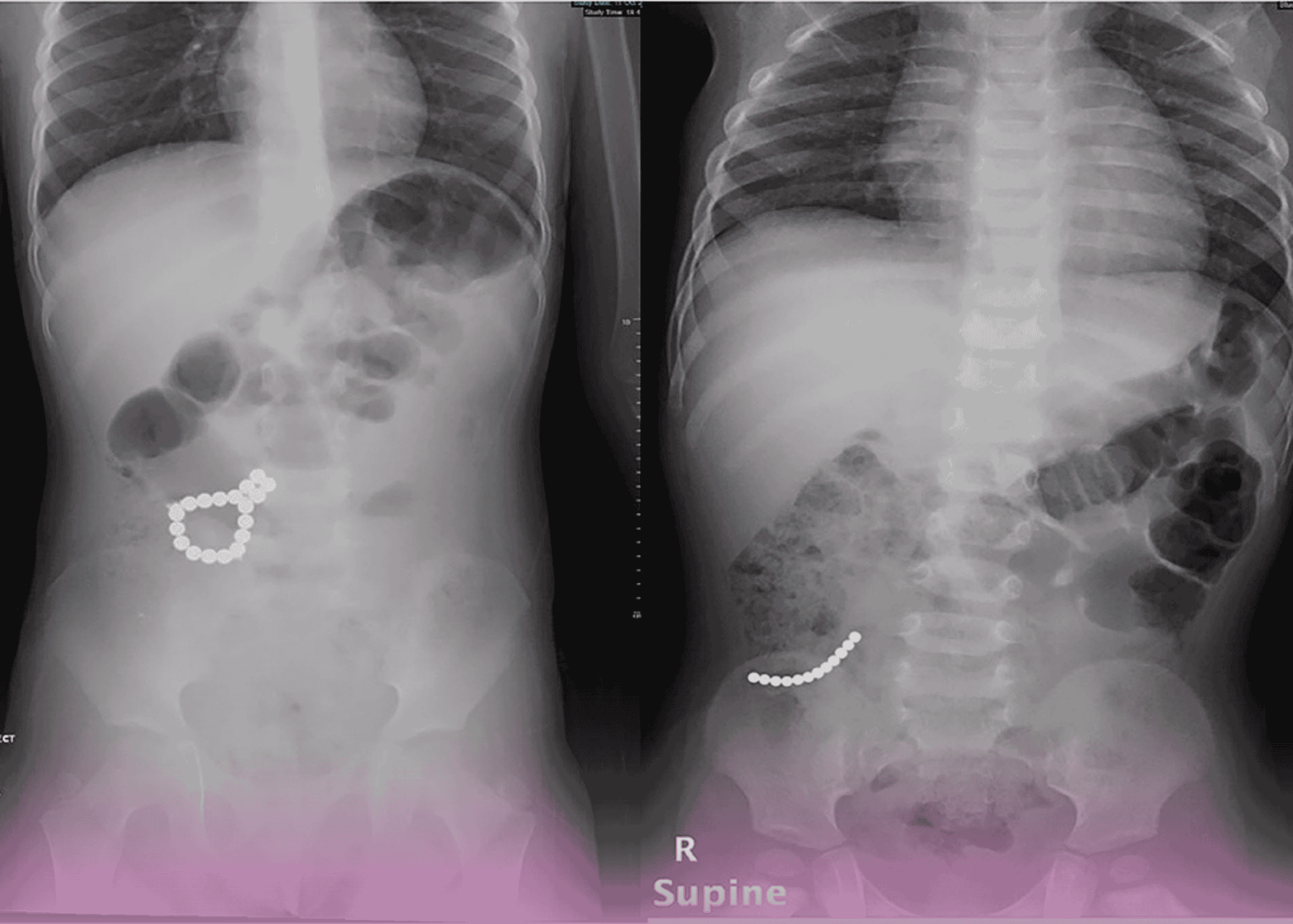A two-year-old boy’s life was saved through the swift and coordinated efforts of a multidisciplinary medical team at Burjeel Specialty Hospital in Sharjah, after he had swallowed 17 small magnetic pieces that posed a significant risk to his digestive system.
Critical Presentation
The toddler was brought to the hospital after experiencing nausea and refusing food for approximately 72 hours. His parents, unaware of what might be causing these symptoms, sought medical attention when the refusal to eat persisted. An abdominal X-ray revealed the alarming presence of 17 magnetic pieces that had been ingested at least 72-96 hours prior, according to parental estimates.
By the time of presentation, the child had not passed stool for 48 hours and was showing signs of discomfort, irritability, and anxiety. Clinical examination revealed sluggish bowel sounds, suggesting developing intestinal obstruction—a potentially life-threatening complication.
Immediate Intervention
“Foreign body ingestion in children is a relatively common occurrence, but multiple magnetic pieces represent a particularly dangerous scenario,” explains Dr. Mohamed El Sayed Eraki Ibrahium, Medical Director and Consultant of General & Laparoscopic Surgery at Burjeel Specialty Hospital Sharjah. “When multiple magnets are swallowed, they can attract each other through intestinal walls, leading to pressure necrosis, perforation, and peritonitis.”
The medical team devised a two-phase approach:
Phase 1: Endoscopic Retrieval Under general anesthesia, Dr. Mehreen Zamanr, Specialist Gastroenterologist, performed an emergency gastroscopy. The procedure revealed multiple magnet pieces in the stomach body and antrum, with some impacted at the pylorus—the stomach’s exit point.
Using specialized endoscopic tools including rat-tooth forceps and snares, the team successfully retrieved 13 magnetic pieces over a two-hour period. The remarkable challenge during this phase was the powerful magnetic force between the pieces, which caused them to resist separation and required exceptional technical skill to overcome.
Phase 2: Surgical Intervention Fluoroscopic imaging during gastroscopy revealed that four remaining magnetic pieces had already passed into the distal intestine, likely stuck at the ileocecal junction. An immediate colonoscopy attempt proved unsuccessful due to stool impaction.
After consultation with general surgeons Dr. Eraki and Dr. Saima Asrar, the decision was made to proceed with a laparotomy to retrieve the remaining magnets. During surgery, all four magnets were located in the ileum and successfully removed through a small enterotomy. Significantly, the team observed early ulceration of the intestinal wall where the magnets had lodged—confirming the urgency of intervention before perforation could occur.
Technical Challenges
“This case presented unique challenges due to the magnetic properties of the foreign bodies,” notes Dr. Saima Asrar. “When attempting to remove one piece endoscopically, if it slipped from the forceps, it would immediately be drawn back to the remaining stack by magnetic forces. Additionally, the duration of impaction had begun to cause superficial necrosis of the stomach lining where some pieces had been stationed.”
The successful outcome was achieved through seamless coordination between gastroenterology and surgical teams, along with rapid decision-making when initial approaches required modification.
Public Health Importance
This case highlights the critical importance of keeping small magnetic objects away from young children. Parents and caregivers should be vigilant about magnetic toys, decorative items, and household objects that could pose ingestion risks.
Dr. Eraki emphasizes: “Immediate medical attention is crucial if magnetic ingestion is suspected or witnessed. The window for non-surgical intervention narrows significantly after 48-72 hours, and delays can lead to serious complications including intestinal perforation, peritonitis, and sepsis.”
Thanks to the coordinated efforts of the medical team at Burjeel Specialty Hospital Sharjah, this young patient made a full recovery from a potentially life-threatening situation.


